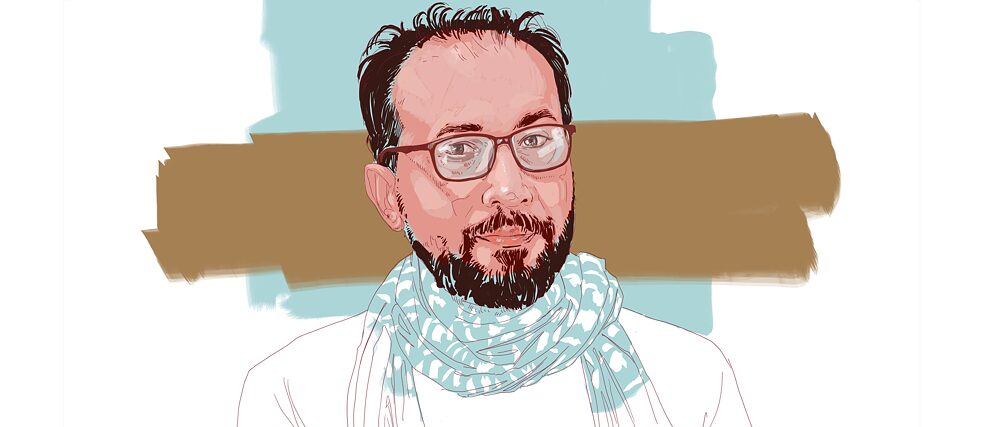by Hasan Falih from Baghdad
Alsadrea Chopin

Hasan Falih is an Iraqi novelist. He was born in Baghdad in 1981. He has a Master’s degree in Graphic Design. He is a teacher at the Graphic Designs Department of the Fine Arts Institute in Baghdad. He also works as a scriptwriter at the Independent Iraqi Centre for Film.
Hasan has written several novels including Taxi Crown in 2015, Reader of the Clay in 2016, a collection of short stories in 2017, and the novel Cameras and Angels published in 2018. In 2015, his play The Alawi Well, which is centred around the owner of a sacred well in Najaf where the dead are washed, won first prize at the theatre festival run by the Institute of Fine Arts. Hasan participated in a workshop organised by the Booker Prize in Amman, Jordan. It was conducted under the supervision of various important Arab novelists.
The situation in Iraq and its impact on Hasan’s work
Hasan says that despite all the problems and sectarian conflicts, Iraqi writers have managed to produce 700 novels from 2003 until now. In Saddam’s era, everything was militarised to the dictator’s advantage, including poetry, music, photography, novels, films and media. Although Iraq still has many problems, it cannot be compared to before, according to Hasan.His 2015 novel Taxi Crown is about the 286 students of Baghdad University whose names were all Sabah. They were all rounded up and were executed in 1981 in Najaf for the simple reason that a secret member of an opposition party was named Sabah.
The project
The novel, funded by Spotlight Iraq is about the new problems plaguing contemporary Iraq. It is about young musician and composer named Ashur from an old neighbourhood in Baghdad called Al-Sadrea. His family named him Ashur after his deceased uncle who was killed in the Iran-Iraq war. He dislikes his name, and the people of the Alsadrea district give him the name Chopin Alsadri after the famous Polish composer Frédéric Chopin.After 2003 and the fall of regime, Ashur buys a piano from a second-hand street market. He faces a series of obstacles in the way of fulfilling his passion for music. Alsadrea homes are small and have small doors. When he brings the piano, it cannot fit into the house door. There are also militias in the area who forbid music. He hears that the newly formed Iraqi government is trying to change the national anthem. He tries to compose the anthem in the hopes of winning money and renting a place to keep his piano safe. In the middle of all of this, including the attacks on music and culture, Ashur still adamantly tries to compose music.